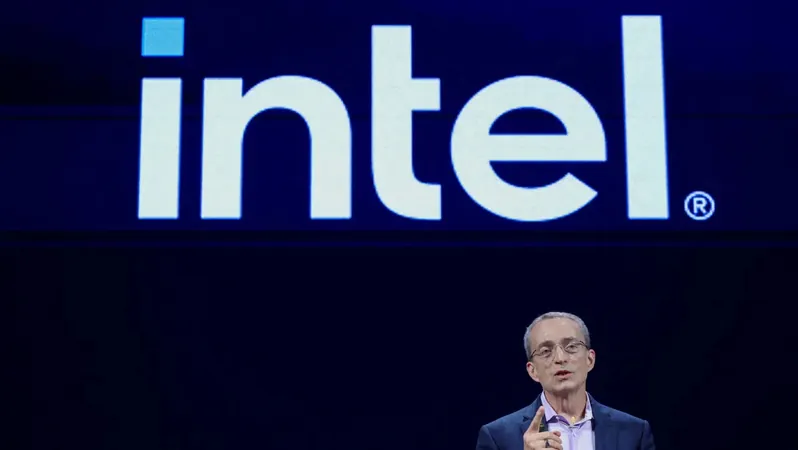
The Long Road Ahead for Intel: Experts Weigh In on Future Strategies
2024-09-25
The Long Road Ahead for Intel: Experts Weigh In on Future Strategies
In a recent discussion on Yahoo Finance, Eric Jackson, founder and president of EMJ Capital, shared critical insights into Intel's (INTC) current situation and the hurdles it faces in regaining its competitive edge in the semiconductor industry. Joined by Yahoo's Executive Editor Brian Sozzi and Catalyst hosts Seana Smith and Madison Mills, Jackson emphasized that there is no "quick fix" for the legacy chipmaker.
He stated, “I don't see a quick fix here. I don't see a lever to pull, whether it's taking money from Apollo, separating the company into two businesses.” His comments come amid reports that Apollo Global Management (APO), the parent company of Yahoo, has proposed a multibillion-dollar investment in Intel. Meanwhile, rumors swirl that Intel is contemplating a split to divide its foundry operations from the rest of its business model.
Jackson outlines that the challenges Intel faces are deeply rooted and could lead to a “ten-year slog” of attempts to revitalize the company’s culture and operations. Despite these obstacles, he believes that the need for Intel’s success is paramount, especially for the United States and Western economies. “The biggest thing that they have going for them is that the U.S. and the Western world need Intel and their foundry business to succeed,” he said, highlighting the geopolitical implications of Intel's performance amidst fears of a potential conflict with Taiwan, where Taiwan Semiconductor Manufacturing Company (TSM) is a major player.
In light of these challenges, Qualcomm (QCOM) has emerged as a potential suitor for Intel, initiating discussions about a takeover. However, Jackson suggests that the path to a merger is complex and fraught with regulatory scrutiny—although he feels these issues may not pose a significant barrier given the companies' American roots. “An American having basically a stake in this game going forward, I think regulators would approve it,” he asserted.
Yet, it’s not regulatory challenges that Jackson views as the primary stumbling block. He poses a critical question about investor sentiment: “Would Qualcomm investors be jazzed about it? Would Intel investors be jazzed about it?” This concern indicates that the deal's viability hinges on whether both sides can find common ground that excites their respective shareholders. Currently, Intel’s stock is hovering near its book value, which Jackson argues may not be appealing enough for investors who have weathered years of decline, adding complexity to any potential collaboration.
As Intel navigates these choppy waters, the stakes couldn't be higher—not just for the company itself, but for the entire semiconductor industry in the U.S. and beyond. The path forward is uncertain, but with geopolitical tensions rising and the increasing need for a robust semiconductor sector, Intel's decisions will be pivotal in shaping the future landscape of technology and innovation. Stay tuned as we continue to monitor this evolving story.


 Brasil (PT)
Brasil (PT)
 Canada (EN)
Canada (EN)
 Chile (ES)
Chile (ES)
 España (ES)
España (ES)
 France (FR)
France (FR)
 Hong Kong (EN)
Hong Kong (EN)
 Italia (IT)
Italia (IT)
 日本 (JA)
日本 (JA)
 Magyarország (HU)
Magyarország (HU)
 Norge (NO)
Norge (NO)
 Polska (PL)
Polska (PL)
 Schweiz (DE)
Schweiz (DE)
 Singapore (EN)
Singapore (EN)
 Sverige (SV)
Sverige (SV)
 Suomi (FI)
Suomi (FI)
 Türkiye (TR)
Türkiye (TR)